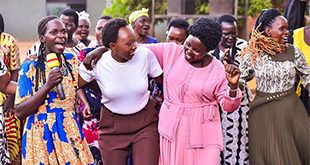
Kampala, Uganda | THE INDEPENDENT | The Uganda National Farmers Federation-UNFFE has applauded the proposed parish model of development.
Last month, the Minister of Finance Matia Kasaija told Parliament that the government plans to spend 490 Billion Shillings under the new parish model project that is meant to eradicate poverty among 68 percent of households across the country.
The project aims to have development activities planned for and executed at the parish, as the lowest level unit for planning and development.
Others said the model needed a comprehensive feasibility study which had not been done, including a carefully planned pilot program.
UNFFE is now calling for the immediate implementation of the program. The federation which started in 1992 operates through village executive committees as the lowest management and development committees, which also have hubs and contact farmers.
This according to the federation rhymes well with the structure on which the government wants to operate the parish model based on nucleus farmers or village agents.
UNFFE President Dick Nuwamanya says that the current structures in place are adequate for the implementation of the model. He says that the only problem would be the will to implement the proposal.
One of the reasons being put forward for the delay of the plan implementation is that it has hardly been studied or even piloted. Analysts say for such a massive proposal, careful planning is required before it is implemented because should it fail, it will have a lot of negative economic and social effects.
According to the ministry of finance, planning and economic development, they are using the presidential model farms that were established in different parts of the country.
The farms were aimed at showing the small-holder farmers that they can use low-cost methods like bottle drip irrigation to do profitable farming.
Nuwamanya says that calling for a feasibility study and a pilot for the program is a way of either delaying or an intention to fail the program. He adds that the government needs only to ensure that the farmers are well connected to the market and the storage infrastructure.
Of the things that the government has to do is ensuring that there is enough and qualified personnel.
A lot of the work including monitoring and accounting is expected to be executed by the Parish Chief who will be reporting to the District Chief Administration Officer, CAO.
This calls for training of most of the parish chiefs that are employed today, while the government also concedes that about half of the more than 10,000 parishes have no chiefs.
But Nuwamanya says the government can hire and train all the chiefs in the country in the time available.
“Get the 10 chiefs per district and develop a curricular for a refresher course for them. Development work is not rocket science,” he says.
He insists that reducing the number of stages or levels the resources go through to reach the grassroots will enhance efficiency.
The proposal also poses a challenge of transparency, with some views showing worry that the funds will be mismanaged as has happened with several previous programs.
Development researcher, Frederick Golooba Mutebi for example questions why the government is setting aside money for mindset change, saying the masses just need sensitization on what to do.
“What do government of Uganda experts mean when they cite “negative mindset” as an explanation for poverty in rural areas? I understand some of the money going into the parish model of development will be for tackling “negative mindset”. What will it be spent on exactly?” he wonders.
The government argues that Ugandans especially farmers, who account for more than two-thirds of the population are stuck in subsistence production, hence the need to change their minds on top of giving them financial capacity and technology.
But Golooba-Mutebi is of the view that knowledge by extension workers on inputs and the market is more important to lift people out of poverty.
“The poverty issue is more complicated than that. For example small-scale farmers lack information (extension services) that helps them know what inputs they need and how to source them, and where or how to market their produce. What does this have to do with a negative mindset?”
*****
URN
 The Independent Uganda: You get the Truth we Pay the Price
The Independent Uganda: You get the Truth we Pay the Price


